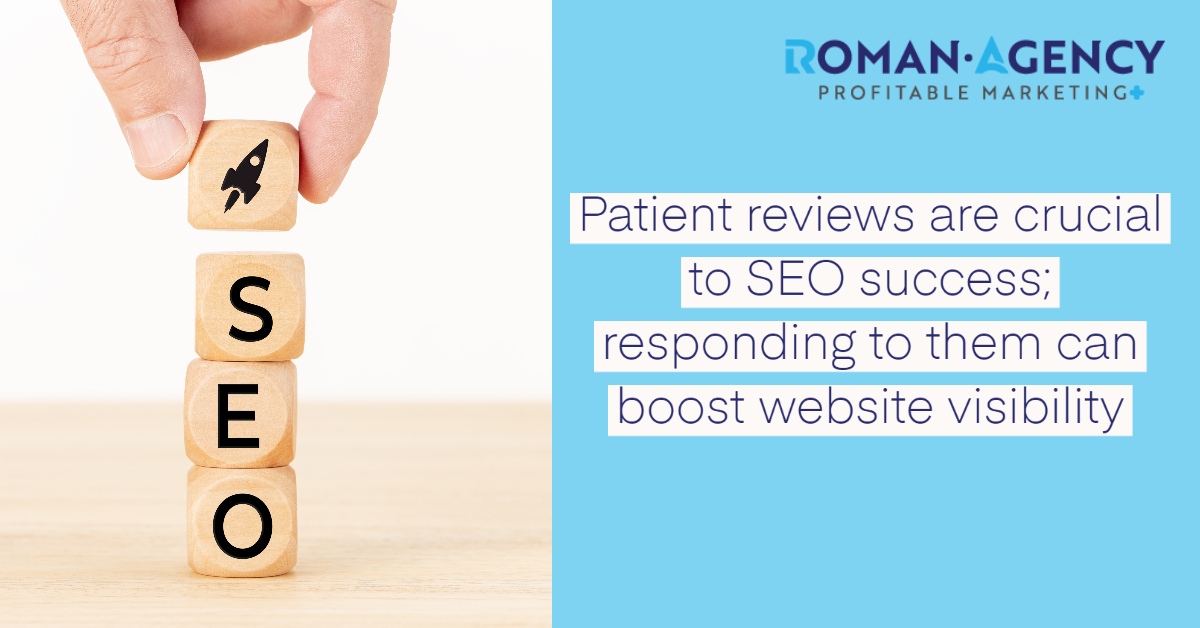Patient reviews are essential to any thriving healthcare business in the modern world. When used correctly, patient reviews can help turn any clinic or organization into a magnet for new patients and scheduling.
On the other hand, companies rarely use reviews to improve their visibility and patient satisfaction. Many clinics and healthcare providers receive patient reviews but need help figuring out how to respond.
Keep reading to learn about common reviews, what they mean for providers, and some examples of how to respond to patient reviews to help maintain a positive image online.
Why Are Patient Reviews Important?
As more of the world continues to move online, patient reviews are more important than ever to stay visible and relevant. Online reviews from sources like Google and Yelp can be one of the most crucial factors for prospective patients when deciding where to take their business next.
A medical business can significantly benefit by managing its online presence and optimizing it to drive more organic traffic. If you ignore customer reviews, you could damage your reputation.
Patient reviews can be short or long, positive or negative, and accurate or (arguably) inaccurate. Regardless of the specifics, each one is important and worth addressing.
Positive Reviews
Positive reviews emphasize the best experiences of patients, reinforcing your brand and giving potential patients a good reason to trust your practice and make appointments.
In this case, the review might praise their experience with scheduling, wait times, or interactions with staff. The more positive reviews you can get, the better!
Negative Reviews
A bad review can make potential patients nervous and think twice about scheduling. The patient might mention long wait times or billing issues in these cases.
It’s important to note that even if these comments are believed to be inaccurate or unfair, they still show you how the patient felt they were treated. Prospective patients consider these details when deciding where to take their business.
Mixed Reviews
Mixed or neutral online reviews may contain a combination of negative and positive feedback or simply consist of a middle-range score. Although these reviews won’t necessarily boost or damage your reputation, there are still numerous benefits to making a strategic response.
Star ratings can be misleading and don’t accurately reflect customer reviews. For example, a five-star review with negative comments should still be considered harmful.
So it’s essential to use a system to analyze comments to understand better what customers are saying.
Why You Should Respond to Patient Reviews
While there are several good reasons to engage with your patient reviews, a few are worth explaining in detail.
Building Trust
Trust is a fragile yet essential thing to maintain with your patients, and answering a review is an excellent way to nurture a positive relationship. Responding to patient reviews is a perfect approach to reputation management, as it demonstrates to patients that you are interested in their feedback, thus encouraging further interaction in the future.
Establishing a solid and engaging voice with patients can also improve brand awareness and storytelling, thus enhancing the image of your business with prospective patients. If you want to be viewed as a practice that places patients first, put effort into your relationships with other patients.
Identifying Mistakes
No business is perfect, and sometimes we can’t avoid mistakes. While missteps can negatively affect your relationship with patients and lead to less-than-ideal patient reviews, this creates an opportunity to demonstrate your awareness and willingness to listen to feedback.
Responding to negative reviews can increase overall patient satisfaction. Recognizing and understanding the need to fix an issue can help soothe negative patient reviews. It can also show potential patients that you take problems seriously.
A common issue among patients is a need for comfortable interaction with providers and access to patient data. Thus, implementing a safe and reliable customer relationship management system can improve patient experiences. Of course, mistakes can be minimized with the help of intelligent healthcare CRM software that keeps your team connected and efficient.
Improving SEO
Search engine optimization, or SEO, determines how visible your business is compared to other companies on the web. Improving SEO can make a huge difference in traffic and scheduling.
One major contributor to SEO is engagement on your website or search engine listing. While patient reviews are essential to increasing site traffic, responding to them will further strengthen SEO. You can also improve your SEO with website design and strategic link building.
In short, there are many upsides to responding to reviews for the overall visibility of your business and patient satisfaction.

Considerations to Keep in Mind
The Health Insurance Portability and Accountability Act (HIPAA) is a federal law that protects patients’ private health information. All healthcare providers must follow HIPAA Privacy and Security Rules. Violating these rules can result in fines, job loss, and protected health information (PHI) exposure.
One of the most common HIPAA violations includes revealing PHI to unauthorized individuals. For example, a medical professional who discloses any identifying details, such as a patient’s name, the reason for their visit, or geographical information, in response to a patient review is a HIPAA violation.
Thus, you must remain cautious and mindful of all data to post online. Here are a few things that you can do to ensure your patient review responses are safe:
- Avoid using PHI to address the patient who posted the review or other patients. PHI includes the patient’s name, birthday, address, and phone number.
- Although tempting, avoid mentioning specifics about a patient’s visit or treatments at your facility. You’ll want to avoid implying that the patient has even visited.
- Use standardized language to inform patients that you can’t respond to comments mentioning PHI, even if the patient writing the review said it first.
Patient privacy laws must be followed in all patient communications, such as testimonials and email marketing. Reputation management can be complex, but following HIPAA rules and the tips above can help make it seamless for your medical practice.
Examples of Patient Review Responses
Let’s combine what we’ve learned and give examples of patient review responses.
Positive Review Example
Here’s an example of a positive review:
“I had an excellent experience. Everyone I worked with was great, and scheduling was easy! The doctor I saw really connected with me. I look forward to returning to this office!”
While it may be tempting to leave a positive review alone (why to fix what’s not broken, right?), you can do a few things to maximize the positive benefit of the review.
- Thank the reviewer for their positive review. Expressing gratitude is an easy way to show that you’re listening to their feedback and are ready to respond when needed.
- Agree with the patient to echo positive feedback, which shows that you are working hard to maintain standards and create positive experiences.
- Ensure you finish emails with your name for a personalized touch, allowing you to stand out from automated responses.
Here’s an example of your response:
“Thank you for your comments! We pride ourselves in offering flexible scheduling and friendly staff to make the best experience possible, and we’re constantly striving to maintain the best standards for all our clients. We hope that you have an excellent day. -Karah”
Negative Review Example
Now, here’s an example of a negative review:
“I had an awful experience. The front desk was rude to me, I was seen 30 minutes after my appointment, and my doctor didn’t even make eye contact with me. I would not recommend this place to anyone!”
You might be tempted to delete a review like this – don’t! Taking the time to respond can help alleviate some of the patient’s negative views towards their experience, improve the image of your business in the long run, and give you opportunities to learn from mistakes.
You can follow these steps to help you create an appropriate response:
- Thank the reviewer for bringing the issues to your attention. Displaying an interest in the problem is an effective method to show the patient that you weren’t aware of the issue yet and, with the help of their comments, can work on fixing it.
- Ensure the patient knows you’re sorry for their negative experience and will do something about it. Expressing the desire to make it right can go a long way in mending a damaged patient relationship.
- Good luck to the patient and sign off.
Here’s an example of your response:
“Thank you for your comments. We sincerely apologize that our staff is not meeting expectations and want you to know that we will use this feedback to help improve our patient experience in the future. We wish you a wonderful day. -Samuel”

Mixed Review Example
What about mixed reviews?
It is unlikely that every review will be overwhelming negative or positive, and many will look like this:
“My experience was good. Some things could be improved, but it was fine overall.”
The responder only has a little to work with here. There are only so many things to address directly without asking the patient for more information, which you’ll want to avoid to protect private health information.
For mixed reviews, we recommend thanking the patient for their feedback and moving on. If you’re going to get more information about the patient’s experience, contact that patient privately for a more thorough explanation of their experience. It may even turn into a positive review later on!
Here’s a simple response:
“Thank you for your response. We strive for high-quality patient care and hope to improve with each visit. We wish you a great day! -Benjamin”
Conclusion
Patient reviews can make or break a healthcare business, but they don’t have to be stressful if appropriately handled. Understanding the impact each type of review can have on your practice, how to keep the protected health information of your patients safe, and how to effectively respond to those reviews can help your business thrive in the long term.






